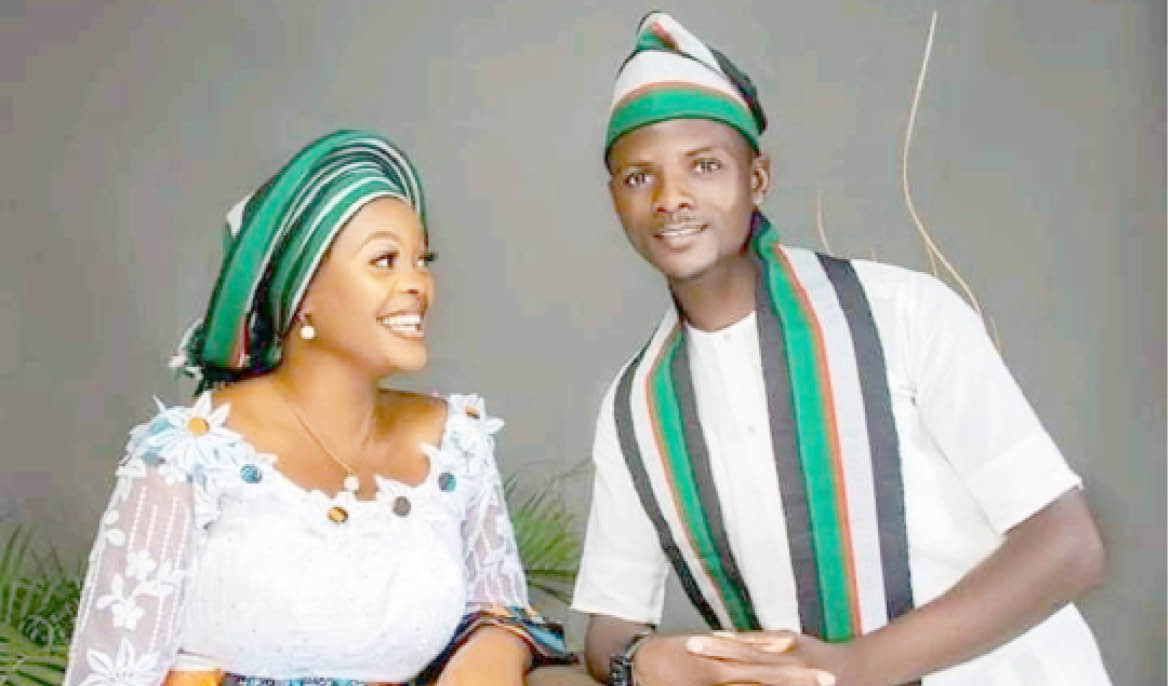There are some socio-cultural factors that shape marriages in Plateau and Kaduna states. Daily Trust reports that some would-be grooms who cannot afford the long list of items required before marriage remain bachelors.
Bride price
In southern Kaduna, our correspondent was told that in many tribes found in eight local government areas—Kaura, Jema’a, Zangon Kataf, Kauru, Sanga, Kagarko, Jaba and Kachia—marriage ceremonies begin when the groom’s family visits the bride’s.
Gambo Waziri, who hails from the Ikulu tribe of Zangon Kataf, said, “During the visit, the spokesman of the family would introduce his kinsmen and explain their intention, after which the prospective bride would be invited and asked if she knows the visitors. If she says yes, then she would be asked if they should be accepted. If she says yes, then her family would ask the groom’s family to drop something as evidence. Some give wrapper, kola, and now, Christians also present bible.”
- Nearly 2,000 journalists die of COVID-19 in 94 countries
- We can’t leave auto repair for any other job – Kaduna graduates

He further said that during the second visit, the bride’s family presents a list, which includes dowry, salt, red oil, goats and drinks. Waziri said the Ikulu dowry has never been high, but the items on the list and other things like food and full leg of a cow, box and clothing must be provided a day to the wedding.
He added that although the process is almost the same in southern Kaduna, the quantity of items differ from tribe to tribe or clan to clan.
Recounting his experience, Joseph Ezekiel said that apart from paying N50,000 as dowry for his wife, who hails from Nkyob, he spent a lot on other items like food and clothing.
“The wedding items include chickens, goats, cartons of Maggi cube, gallons of 25 liters of palm oil and groundnut oil, crates of soda and malt drinks, N20,000 for wine, 15 bags of salt, soap and lotions, half bag of rice, cow leg, 15 yards of brocade,” he said.
But Waziri said that at Ikulu, a prospective groom is required to present not less than 15 bags of salt, Maggi cubes, 50 litres of red oil and vegetable oil, five goats, many crates of malt, beer and soft drinks.
“The money paid is high. This majorly include the dowry, giving money to the family for several rites, such as Kudin Hawa Daki, Kudin Gyaran Daki and Kudin Kitso.
“At present, there’s someone who cannot afford it and he is trying to back out. After he paid all these, they brought out a new list with similar demands, and being an orphan, he told me that he could not afford it. And his prospective in-laws are not willing to have a rethink,” he said.
Also, Mr Bayei Augustine from Kauru Local Government Area told our correspondent that marriage is not expensive in his tribe, Chawai, adding, however, that traditional rites vary from one community to another.
“First, an investigation into the background of both families is carried out to ensure that their children do not enter into the ‘wrong hands.’ If both families are satisfied, a day will be fixed for a meeting, during which a list of items for the marriage will be given to the groom’s family, including two goats, salt, local spice and potash,” he said.
But Mr Derek Christopher of Gworok, Kagoro in Kaura Local Government Area, said some clans had inflated the bride price. For instance, some houses now demand as much as N250,000, saying it is meant to reduce the level of divorce in their community.
“The only implication of this is an increase in intermarriages from Gworok to other tribes,” he said.
Western, religious influences in Plateau
The Afizere people, also called Jarawa, are found in Jos North, Jos East and some parts of Mangu local government areas of Plateau State. The people are also found in parts of Tafawa Balewa and Toro local government areas of Bauchi State.
An Afizere indigene and public commentator in Jos, the Plateau State capital, Azi Aware Peter, told Daily Trust that marriage rites started with a ritual that expected the prospective groom to embark on a job for a whole day at his prospective in-law’s farm before any other rite would take place. He, however, added that this is no longer the case as many people are not able to meet the obligation.
Peter said that at a time, his sister found a suitor, who was asked to present a number of items on a list, but he could only produce half of the items.
“The items he brought were kept in the house, on the agreement that he was going to complete them. With time, some of the items got bad because the groom could not complete the list and that was the end of the relationship,” he said.
He, however, said the dowry is negotiable among Afizere people, depending on the financial capacity of the groom and bride’s family.
“In the past, the dowry was small and fixed because things were very cheap and simple. The educational background of the bride also determines the amount of money to be paid as dowry,” he said.

Peter said that aside the dowry, the items presented before marriage include rice, kola nut, two jerry-cans of palm oil, two jerry-cans of groundnut oil, two bags of salt, two sets of wrapper, sweets, beniseed and a stated amount of money to be given to the mother of the bride and her friends.
“In the event that the groom cannot afford the items, the bride’s family may decide to cut down on the quantity, looking at the economic realities of the time,” he said.
However, the national president of the Afizere Cultural and Community Development Association, Atu Azi Waziri, said the coming of Christianity and Islam had impacted on the Afizere traditional marriage, saying most of things requested on the list now discourage many prospective suitors.
He said, “The modern way of marriage is affecting our traditional way because the prospective husband is often asked to bring things he cannot afford.”
He, however, said that stakeholders in Afizere are now looking at how those items brought by religion and western culture can be reduced to allow young men and women get married easily.
“Actually, the long list asking the groom to provide items before marriage is discouraging them from getting married. We want the list to go along with tradition because most of the things families demand are not on our traditional list. We are on the process,” he said.

 Join Daily Trust WhatsApp Community For Quick Access To News and Happenings Around You.
Join Daily Trust WhatsApp Community For Quick Access To News and Happenings Around You.

